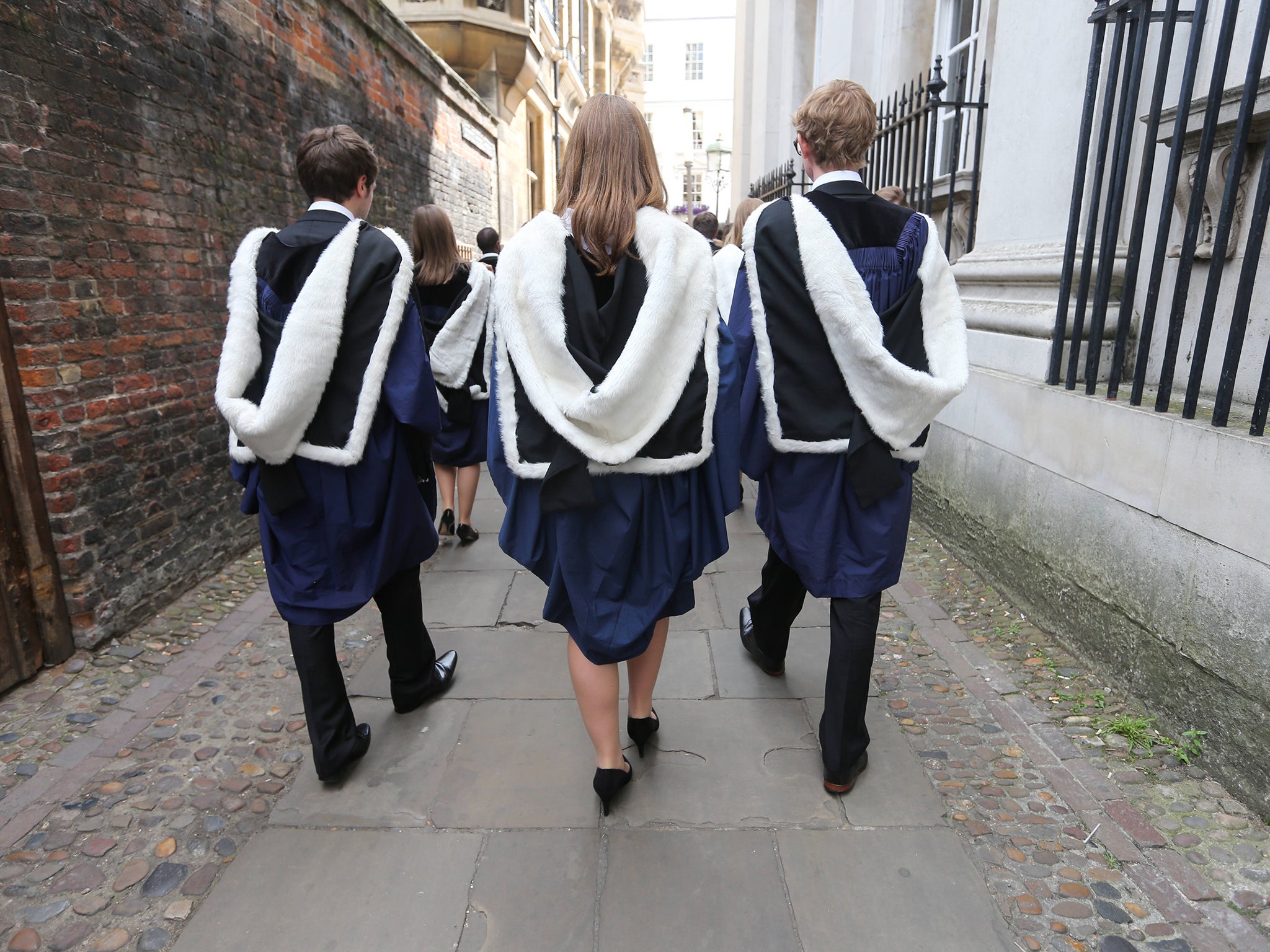Cambridge students getting firsts more than double in 50 years
University denies grade inflation

The proportion of Cambridge undergraduates getting first class degrees has more than doubled in the last 50 years, according to a new analysis which highlights concerns over “grade inflation.”
The study, which will fuel fears of falling standards in Britain’s higher education system, reveals the proportion of first class degrees handed out by the university each year has risen from 10 per cent in 1960 to 24 per cent in 2014.
And recent years have seen a growing gulf between the arts and sciences, with the growth in first class degrees “most marked” in the arts between 2000 and 2014, rising from 17 to 30 per cent of students.
In contrast, there has been “no significant growth” in firsts for people graduating in science subjects over this time period, according to the analysis of university data by economist Bernard Rivers, former visiting fellow at Cambridge University.
And the percentages of students awarded firsts “vary significantly” from subject to subject. Between 2000 and 2014 only 17 per cent of those studying law got a first, compared to almost half (47 per cent) of education undergraduates.
And while 69 per cent of chemical engineering students got a first or an upper-second, the proportion was far higher in subjects like English and history, where almost every single student (97 per cent) was awarded one of the top two classes of degree.
“These increases cannot be fully explained by improvements in student quality. It is clear that some grade inflation is taking place,” says the analysis.
It adds that there is “no evidence” that the subjects giving out the most firsts “are able to do so because they have attracted far more of the very best students”.
“These findings raise questions about what is the true meaning, or value, of a first or an upper second,” concludes the research, which recommends that Cambridge University reviews the way it gives out its degrees.
“There needs to be far greater consistency and fairness for graduates than there is at the moment, where individuals of similar ability studying different subjects can come out with contrasting degree results,” Mr Rivers told The Independent.
But in a statement, a Cambridge University spokesperson said: “The university is satisfied that our quality assurance processes are robust, and that our classing systems recognise student achievement appropriately. The general increase in the number of firsts mirrors the position nationally, and Cambridge’s figures are in line with those at other Russell Group institutions.”
Join our commenting forum
Join thought-provoking conversations, follow other Independent readers and see their replies
Comments